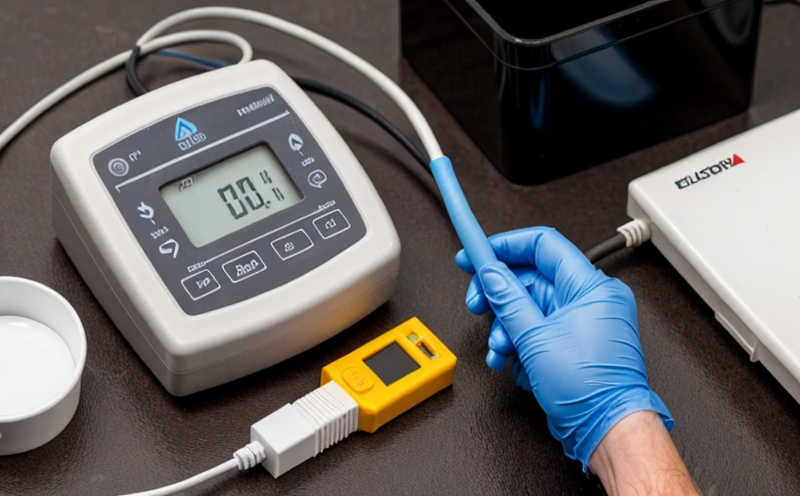JIS K7202 Electrochemical Testing of Polymer Materials
The JIS K7202 standard is an important benchmark in the chemical testing sector, specifically for electrochemical evaluation of polymer materials. This test evaluates the resistance and stability of polymers under various electrochemical conditions. It helps quality managers ensure that products meet stringent performance criteria in environments where electrical conductivity or corrosion resistance are critical.
The primary purpose of JIS K7202 is to determine the electrochemical behavior, such as polarization resistance, of polymer materials used in various applications like electronics, automotive components, and structural elements. This testing ensures that materials perform reliably under conditions that involve electrical current flow.
Electrochemical testing according to JIS K7202 involves exposing specimens to an electrolyte solution under specific conditions. The test measures the resistance of the polymer material when subjected to an alternating or direct electric field. This helps in assessing the integrity and durability of the polymer, particularly in situations where it might be exposed to electrochemical corrosion.
The testing process typically involves several steps:
- Material preparation: Ensuring that the sample is representative of the intended application.
- Immersion in electrolyte: Submerging the specimen into a solution designed to simulate real-world conditions.
- Electrochemical measurement: Applying an electric field and measuring the response of the polymer material.
- Data analysis: Interpreting the results to determine compliance with JIS K7202 standards.
The test is particularly useful for industries where long-term reliability under electrical stress is crucial. It provides insights into how a polymer behaves in environments that might involve exposure to corrosive agents or high-voltage applications, such as in the automotive and electronics sectors.
Understanding the electrochemical properties of polymers through JIS K7202 testing is essential for industries like aerospace, where materials must withstand extreme conditions. The results can inform material selection and design decisions that enhance product longevity and safety.
Scope and Methodology
| Test Parameter | Description |
|---|---|
| Electrolyte Solution | Aqueous solution containing specific ions that mimic real-world conditions. |
| Polarization Conditions | The application of alternating or direct current to the specimen. |
| Data Collection | Continuous monitoring of the response of the polymer under test conditions. |
Why Choose This Test
Choosing JIS K7202 electrochemical testing is crucial for ensuring product quality and compliance with international standards. By using this method, companies can verify that their polymer materials meet the stringent requirements set by industry leaders.
The test provides a comprehensive assessment of how polymers behave in various electrical environments. This information is invaluable for optimizing material performance and extending product life cycles. It also helps in identifying potential weaknesses or areas for improvement in material design.
Compliance with JIS K7202 can be a decisive factor when dealing with regulatory bodies or international markets. Meeting these standards signals to customers that your products are reliable and meet the highest quality benchmarks. This is particularly important in sectors like automotive, electronics, and aerospace where performance under electrical stress is critical.
The test results can influence decisions at various stages of product development from R&D to manufacturing. By incorporating JIS K7202 testing into your quality control processes, you ensure that every batch of polymer material meets the required specifications.
Customer Impact and Satisfaction
- Increased confidence in product performance under electrical stress.
- Better alignment with international standards, enhancing market access.
- Enhanced reputation among clients and regulatory bodies.
- Improved material durability leading to increased customer satisfaction.





